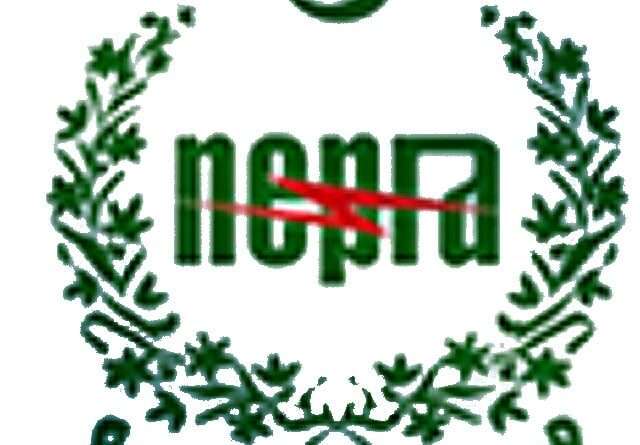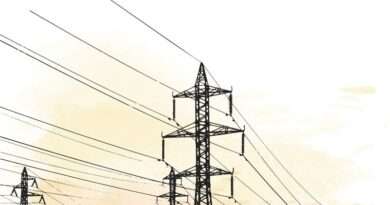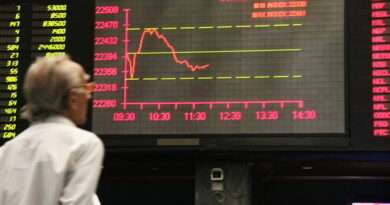Security Deposit Hike Faces Strong Opposition from Business Leaders
|
Getting your Trinity Audio player ready...
|
Introduction
The proposed increase in security deposit rates by electricity distribution companies (DISCOs) has sparked strong opposition from the business community in Pakistan. Business leaders argue that the increase would severely impact industrial growth and make local industries less competitive. They have urged the National Electric Power Regulatory Authority (Nepra) to reject the proposal and consider the financial hardships faced by businesses and consumers.
Business Community Stands Against Security Deposit Hike
Massive Financial Burden on Industries
The Karachi Chamber of Commerce and Industry (KCCI) and other trade organizations have voiced their concerns over the proposed security deposit hike. The increase, particularly in the B2 tariff category from Rs2,010 per kilowatt to Rs54,783/KW, is considered excessive and financially unfeasible.
KCCI President Muhammad Jawed Bilwani has urged Nepra to delay the implementation of the hike until a transparent consultation process is conducted. He emphasized that an inclusive approach is necessary to ensure that all stakeholders, including industrialists, are involved in the decision-making process.
Lack of Transparency in Proposed Increase
In a formal letter to Nepra, Bilwani highlighted that the business community, trade bodies, and consumers have serious concerns regarding the security deposit hikes sought by ex-Wapda DISCOs. The sudden increase, without a clear explanation or justification, raises concerns about transparency and fairness.
The proposal suggests revising security deposits based on electricity consumption, property size, and even market value, which businesses claim would make it difficult for industries to sustain operations. The lack of clarity in the rate adjustment mechanism has further fueled opposition.
DISCOs Accused of Excessive Security Deposit Collection
Security Deposits Collected Beyond Demand
According to Bilwani, DISCOs, including K-Electric, have already collected security deposits that significantly exceed the actual electricity demand. He pointed out that K-Electric has collected security deposits from all consumers to sanction a total demand of 13,000 megawatts. However, even during peak consumption times, the demand only reaches 3,500MW, while normal usage averages between 2,200 to 2,400MW.
“This shows clear exploitation of consumers by imposing unjust security deposits,” Bilwani stated.
Similar trends exist across Pakistan, with all DISCOs sanctioning a total of 97,800MW in security deposits, despite the country’s peak electricity demand being only 23,000MW. Business leaders argue that such practices place an unnecessary financial burden on industries and commercial users.
A Shift to Solar Energy Could Hurt DISCOs
One major consequence of this security deposit hike could be a large-scale transition towards self-generation of electricity through solar power. Bilwani warned that if businesses and consumers switch to solar energy, DISCOs could face a drastic reduction in their customer base.
“The unbearable increase in security deposits will push industries and businesses towards solar technology, leading to an energy crisis for DISCOs as they lose customers,” he cautioned.
Call for a Security Deposit Audit
Business Leaders Demand Accountability
In another letter to Nepra, KCCI urged the authority to direct all DISCOs to conduct an extensive audit of security deposits and consumer contributions. The business community believes that a fair assessment would reveal unjustified security deposits and ensure that consumers are not overburdened.
Bilwani stated that an independent audit would help identify discrepancies and ensure that DISCOs do not take advantage of their customers by imposing unreasonable financial burdens.
Need for Policy Reforms
The industrial sector has demanded that Nepra introduce policy reforms that ensure fair security deposit structures based on actual electricity consumption rather than arbitrary assessments. They also urge the regulator to provide a clear and detailed explanation for any future revisions in security deposit rates.
Conclusion
The proposed increase in security deposit rates by DISCOs has been met with strong resistance from the business community in Pakistan. With concerns over transparency, excessive financial burdens, and the risk of industries moving towards solar energy, business leaders are urging Nepra to reconsider the decision. They demand a fair and transparent system that considers the economic challenges faced by businesses and consumers alike.
FAQs
1. What is the proposed security deposit increase by DISCOs?
The proposed increase includes a significant hike in security deposit rates, such as raising the B2 tariff category from Rs2,010/KW to Rs54,783/KW.
2. Why are businesses opposing the security deposit hike?
Businesses argue that the increase will burden industries financially, reduce competitiveness, and hinder industrial growth.
3. How are security deposits currently collected by DISCOs?
DISCOs collect security deposits from consumers based on sanctioned electricity demand, which is often significantly higher than the actual peak demand.
4. What could be the impact of this hike on consumers?
The hike may push businesses and individuals to switch to self-generated electricity, particularly solar energy, reducing reliance on DISCOs.
5. What are business leaders demanding from Nepra?
They are urging Nepra to reject the hike, conduct an audit of existing security deposits, and ensure a transparent consultation process before any revisions.




